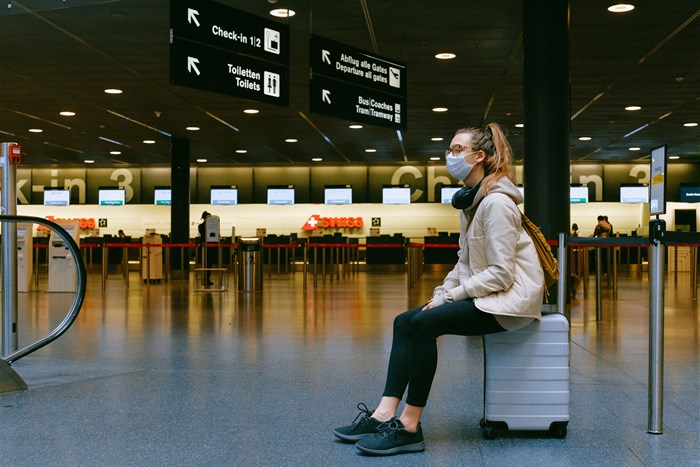
Top stories




Marketing & MediaWarner Bros. was “nice to have” but not at any price, says Netflix
Karabo Ledwaba 1 day


More news

Logistics & Transport
Maersk reroutes sailings around Africa amid Red Sea constraints
















The country’s tourism sector has been severely affected by the Covid-19 lockdown, which saw the borders close early on in the government's efforts to curb the spread of the novel coronavirus.

Tourism can be South Africa’s economic lifeline,” says Tshifhiwa Tshivhengwa, CEO Tourism Business Council of South Africa. “Every day we have been closed to international travel, we have lost R336m of spend and the government has lost vital tax revenue. Opening up our tourism sector will have a direct and immediate positive impact on the government's coffers at a time when it most needs it.Health and safety priority
Importantly, the health and safety of travellers must remain the primary concern for tourism and hospitality stakeholders. The same measures that have been instituted successfully to domestic travellers have been extended to international tourists, which eliminates the need for requirements such as quarantines, explains Professor van den Heever.
“It is imperative that safe alternatives to quarantine approaches also be considered. Workable options can be developed in conjunction with infectious disease specialists and institutionalised into health protocols,” he says.
Under the Tourism Business Council of South Africa (TBCSA), the entire value chain of tourism has devised and rolled out stringent health and hygiene safety programme and protocols under the banner, Travel Safe – Eat Safe, says Lee Zama, CEO FEDHASA, the national trade association for the hospitality industry that includes accommodation and catering sectors.
“These protocols have been based on international best practice and endorsed by the World Travel and Tourism Council (WTTC). Our industry is ready to receive guests. We have protocols in place to mitigate any risk associated with Covid-19 and have developed a Travel Safe – Eat Safe mobile app to ensure that the information of guests and participating establishments are logged electronically. South Africa is travel-ready,” says Zama.
The Covid-19 risk and mitigation measures are the same and the approach to people travelling to South Africa from any country should be identical. The new Covid management situation with different behaviours and following protocols applies equally no matter where you hail from.
We asked you to close your doors so we could open up and host again...Well, that day has finally come!
— SATravelTrade (@SATravelTrade) September 16, 2020
As tourism reopens you too must play your part:
1. Wear your masks
2. Sanitize
3. Wash your hands
4. Social distance
Let’s Travel Again. #ShareSouthAfrica #SAisTravelReady pic.twitter.com/pqOKXMX0TM
“All borders should be reopened as there are no additional risks posed by an industry that is well organised, has stringent health and hygiene safety protocols in place and operates in low-density settings,” adds Professor van den Heever.
“Inbound travel will still be about 30% of 2019 levels. But if uncertainty is created now, this will be far lower. There is, therefore, no need to phase in open borders as travel will in any case phase itself,” he says.
If public health is the overriding criteria for reopening to certain source markets before others, South Africa will need to reopen to those with a similar pandemic profile, not countries where the rolling average of new cases per million of the population is much higher than ours, explains Gillian Saunders, tourism consultant and specialist.

“However, regardless of which source markets you decide to open up to in this phased approach, the reality is that we would still have 58 million South Africans circulating freely within the country compared with a small number of international tourists who will be subject to just the same health protocols as us. The risk is the same.”
Government’s decision to reopen international travel and tourism allows the industry to get back on its feet, says David Frost, CEO Satsa, the voice of inbound international tourism.
The sector cannot grow to its full potential and contribute more meaningfully to South Africa’s economy unless several interventions are introduced swiftly to improve its competitiveness as a tourism destination and drive demand, among these the removal of quarantine requirements for visitors and improved visa access.
Now more than ever comes the opportunity for the public and private sector to collaborate in word and deed and to leverage South Africa’s competitive advantage as a global tourism player. This is the industry that has been earmarked as a catalyst for inclusive economic growth. As such, tourism should be prioritised if it is going to make the contribution it has to potential to pull the South African economy out of these stormy waters,” says Frost.“Covid-19 has grounded our world, but tourism will return. And we need to support its full recovery at the earliest opportunity since it is the single sector with the greatest potential to drive the type of economic growth that South Africa most needs,” concludes Frost.